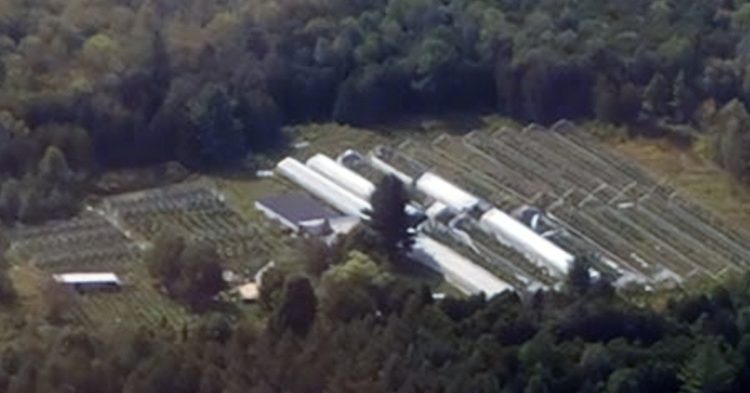Ontario, Canada – Recently, police reported a major cannabis bust in Ramara, where they seized over 2,125 cannabis plants and 111 kilograms (244.7 lbs) of dried cannabis, valuing the haul at $2.3 million. However, this eye-catching figure raises a crucial question: how exactly did they arrive at these numbers, and are they inflating cannabis valuations to frame the narrative?
According to the Orillia OPP, the rural property was being used for outdoor cannabis cultivation, though its license only permitted indoor grows. The bust resulted in the seizure of:
- 2,125 cannabis plants, valued by authorities at $1,000 per plant, totaling $2,125,000
- 111 kilograms (244.7 lbs) of dried cannabis, valued at $222,000
But here’s the issue: the assigned value of $1,000 per plant is significantly higher than what anyone in the cannabis industry would recognize as realistic. Cannabis clones and young plants typically sell for somewhere between $5 and $100, depending on the strain and quality. Even fully grown plants aren’t fetching anywhere near the $1,000 mark that’s been cited. So why are authorities inflating these figures?
Inflating cannabis valuations is not just a matter of exaggerating numbers—it plays into a larger narrative around cannabis enforcement. By inflating the worth of the plants, the story becomes a “multi-million-dollar bust,” giving the impression of large-scale criminal activity. But if we assess the actual market value of these plants, this “$2.3 million” bust may, in reality, represent far less than what the headlines suggest.
The real focus here should be on whether this practice of inflating valuations serves justice, or merely feeds into a sensationalized portrayal of cannabis-related incidents. As cannabis legalization evolves, it’s important to question these tactics, which seem designed to make arrests sound more significant than they are, and to demonize an industry that is increasingly being embraced for both medicinal and recreational use.
The seven individuals charged in this case—ranging from ages 56 to 68—face allegations of unlawful cultivation and possession for distribution under the Cannabis Act. But as we dig deeper into the numbers behind these charges, it’s clear that the story is about more than just a grow-op: it’s about the skewed valuation practices that law enforcement uses to inflate the severity of these cases. Should we really be valuing cannabis plants at $1,000 each when they can be bought for a fraction of that?
This brings into question how the public should be assessing these so-called busts. Are they really cracking down on major illegal operations, or are they just presenting them as such by manipulating the data?
OTHER NEWS: Canada’s Legalization Reduces Youth-Police Incidents
No Cannabis Crossing: Canada Border Warns Travelers









